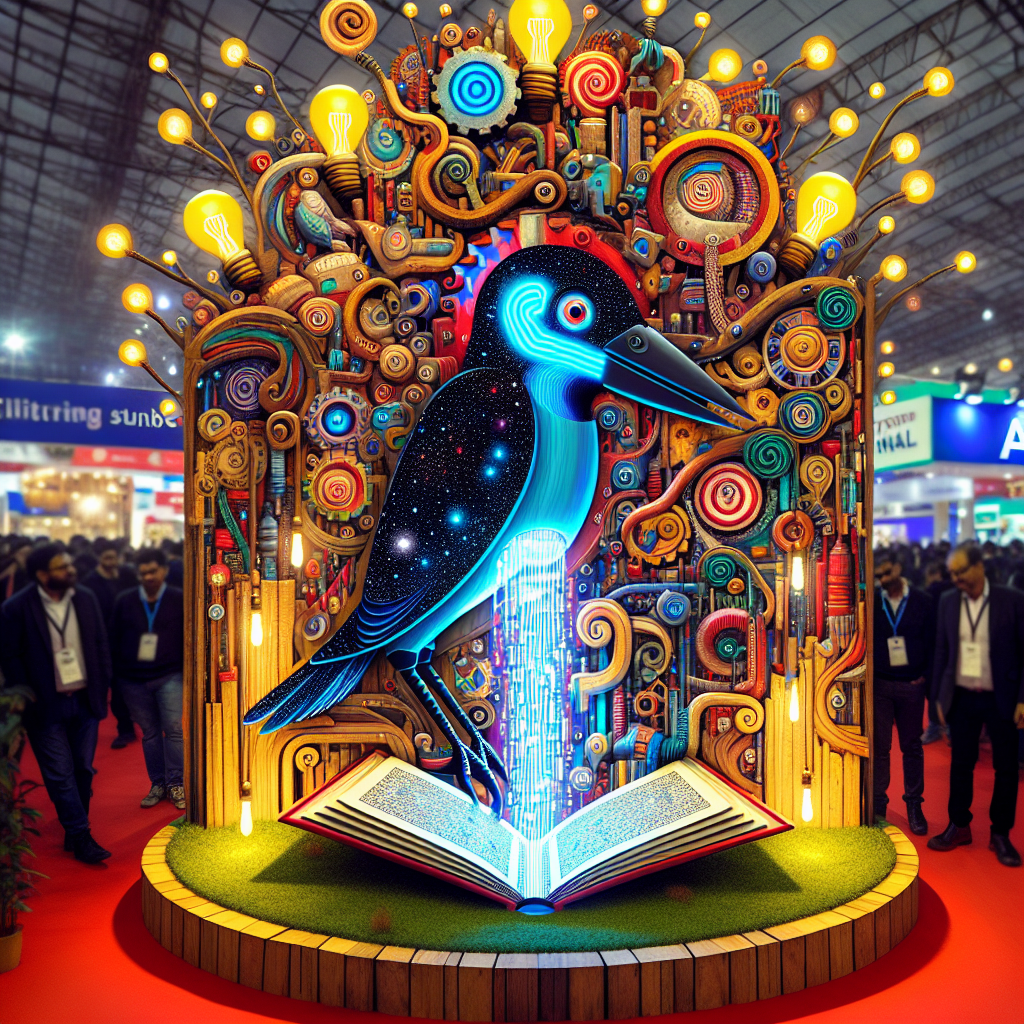Title: HarperCollins Approaches Authors for AI Training: A Disquieting Shift in Publishing Industry?
In a surprising turn of events that continues to stir debate around the ethical implications of artificial intelligence, author Daniel Kibblesmith recently revealed that HarperCollins has offered him compensation to include his children’s book, Santa’s Husband, in a deal aimed at providing material for AI training. This development raises questions not only about the future of literature but also about the relationship between creators and the technology that seeks to replicate their work.
In a social media post, Kibblesmith shared details of his interaction with HarperCollins, detailing that he was approached by his agency regarding a lump-sum offer of $2,500 for a three-year use of his book for AI language model training. According to Kibblesmith, the proposal reflects a growing trend where authors may be compensated to allow their works to be utilized by large tech companies, purportedly avoiding the fate of having their content utilized without consent. However, Kibblesmith referred to this idea as “Abominable,” emphasizing the troubling notion of monetizing a process that could ultimately undermine the essence of human creativity.
The email correspondence revealed that multiple authors have already accepted similar offers, highlighting the urgency faced by writers in a rapidly evolving market. Kibblesmith expressed concern that this trend reflects a broader fear of obsolescence, emphasizing that while the realities of AI cannot be ignored, the response should not come at the cost of artistic integrity. He poignantly stated, “The fear of robots replacing authors is a false binary.” Instead, he proposes that this might lead to a split between two types of literature — one that fosters genuine human connection and another that offers merely ‘on-demand content pellets.’
As the digital landscape evolves, Christians are called to consider how these shifts align with deeper spiritual truths. The Bible teaches the inherent value of human creativity, reflecting God’s own creative nature. In Genesis 1:27, it states, "So God created mankind in his own image, in the image of God he created them; male and female he created them." This not only underscores our uniqueness as creators but also our responsibility to nurture and protect the integrity of our creative expressions.
While HarperCollins has yet to respond to inquiries, Kibblesmith’s decision to reject the offer stands as a testament to the importance of valuing human connection and creativity. The broader implications invite us all to reflect on the future of storytelling and the kind of narratives we choose to embrace.
As we consider this evolving landscape, let’s remember that the essence of storytelling has always been about connecting to our shared experiences, deeply rooted in our humanity. In a world increasingly driven by technology, may we strive to preserve the heart of our stories—stories that challenge, inspire, and ultimately bring us closer to one another in a meaningful way.
In navigating these changes, let us remain hopeful and remind ourselves of the bigger picture. Our creativity is a gift, one that should be celebrated and protected. As we ponder our place in this evolving narrative, let us strive, as it says in Philippians 4:8, to focus on what is true, noble, right, pure, lovely, and admirable. This call to uphold the values of our creative legacies can empower us to shape a future that honors both our art and the sacred connections it fosters.
Explore and dig up answers yourself with our BGodInspired Bible Tools! Be careful – each interaction is like a new treasure hunt… you can get lost for hours 🙂


